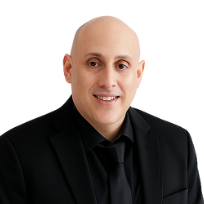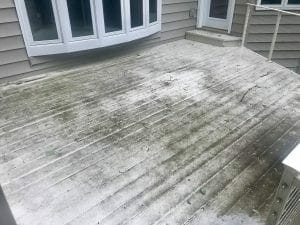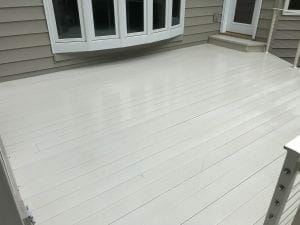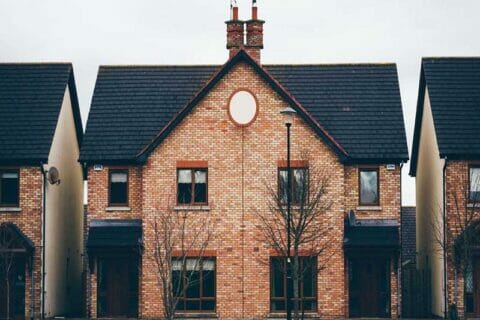The Benefits of Soft Washing for Your Home and Business
 Revised by Bruce Hulse
Revised by Bruce Hulse
If you are among the many who have ever wondered what the difference is between pressure washing and soft washing, do not stress. Clear Ottawa is here to fill you in. Many homeowners and business owners have asked us about our soft wash services, so this article explains the basics: where soft washing comes from, how it differs from pressure or power washing, and why it is a safer and more effective cleaning solution for your property. Use this guide to make an informed decision about your next exterior cleaning service.
Key Summary
- Soft washing uses low-pressure water combined with biodegradable cleaning solutions to remove algae, mold, dirt, and bacteria safely.
- Unlike pressure washing, it targets the root cause of stains (such as bacteria like Gloeocapsa magma) instead of just blasting away surface buildup.
- It is safe for delicate surfaces such as siding, shingles, stucco, and wood, where high pressure could cause costly damage.
- Eco-friendly benefits include lower water consumption, biodegradable chemicals, and reduced environmental impact.
- Results last four to six times longer than traditional pressure washing, saving both money and maintenance time.
History of Soft Wash
Soft washing originated in 1992 with AC Lockyer, a Florida entrepreneur with a background in horticulture. He developed the process to remove algae streaking on roofs without relying on destructive high-pressure washing. By combining his plant science knowledge with cleaning methods, he discovered that a specialized cleaning solution could not only wash away stains but also kill the root causes of organic growth.
After Hurricane Andrew devastated his region and left him without roofing jobs, Lockyer adapted his “Green Wash” solution to clean siding, stucco, and brick surfaces. The results were remarkable, and soft washing quickly gained popularity as a safer, longer-lasting alternative to traditional pressure washing.
Today, soft washing is widely recognized across North America as one of the most effective methods for exterior property maintenance. It is trusted by both residential and commercial property owners who value long-term results, environmental responsibility, and surface protection.
What Is Soft Wash?
Soft washing is a cleaning method that uses low-pressure nozzles combined with biodegradable cleaning agents. The unique combination allows it to remove contaminants such as:
- Algae streaks on roofs
- Mold and mildew growth
- Moss and lichen patches
- Bacteria such as Gloeocapsa magma
- Dirt, pollen, and dust
The cleaning solution works on a microscopic level. Rather than scraping away the surface, it penetrates porous materials and kills the root organisms causing staining and decay. This process sanitizes the surface and ensures that the growth will not return quickly.
Surfaces Suitable for Soft Washing
- Asphalt shingles
- Vinyl siding
- Stucco walls
- Brickwork
- Wood fences and decks
- Clay roof tiles
- Composite and engineered materials
- Painted or coated masonry
This versatility makes it an excellent choice for both homes and businesses. From restoring curb appeal to protecting expensive materials, soft washing is a preventative solution that goes beyond simple cleaning.
Soft Wash vs. Pressure Wash
It is important to understand where each method shines and where it should be avoided.
| Aspect | Soft Washing | Pressure Washing |
|---|---|---|
| Method | Low-pressure water with biodegradable cleaning solution | High-pressure water only |
| Best For | Roofs, siding, stucco, wood, painted masonry | Driveways, sidewalks, patios, hard concrete |
| Longevity | Results last 4–6 times longer | Requires frequent re-cleaning |
| Risk | Gentle on surfaces; requires chemical handling expertise | Can cause cracks, paint stripping, and water intrusion |
| Environmental Impact | Uses about one-third less water; eco-friendly solutions | Higher water use; no root-cause treatment |
Why Pressure Washing Can Be Risky
Pressure washing relies solely on the force of water. While effective for blasting away dirt on concrete, it can be too aggressive for most building materials. High pressure can strip away protective coatings, break shingles, force water behind siding, or even crack softer materials. Homeowners often call Clear Ottawa after discovering damage caused by improper pressure washing techniques.
Another drawback is that pressure washing only cuts off the visible portion of the problem. Organic growth, such as algae, often regrows faster after pressure washing, just like trimming weeds in a garden without removing the roots. This is why many homeowners feel like they need to pressure wash again and again.
Why Soft Washing Delivers Longer-Lasting Results
Soft washing addresses the root of the problem. By using specialized cleaning solutions, it not only removes the visible stains but also destroys the bacteria, fungi, and algae colonies causing them. This means surfaces stay clean for much longer. In most cases, soft washing results can last three to four years, compared to one season with pressure washing.
Benefits of Choosing Soft Wash
Soft washing is more than a cleaning method. It is a preventive care system for your property.
| Benefit | Impact on Your Property |
|---|---|
| Water Conservation | Uses about one-third of the water required by pressure washing. |
| Biodegradable Solutions | Cleaning chemicals break down into carbon and water within ~20 days, leaving no residue. |
| Longer-Lasting Results | Reduces the need for frequent re-cleaning, saving money over time. |
| Low VOC Emissions | Helps maintain cleaner air quality around your home or business. |
| Material Preservation | Extends the lifespan of roofing, siding, and paint by avoiding unnecessary wear. |
| Eco-Friendly Approach | Reduces fossil fuel use and minimizes waste in landfills. |
Additional Advantages
- Protects Property Value
A well-maintained property looks better, sells faster, and retains its value. Regular soft washing prevents premature aging and deterioration of your home or business exterior. - Improves Health and Safety
Mold, mildew, and algae are not only unsightly but can also contribute to health issues, especially for those with allergies or respiratory concerns. By sanitizing surfaces, soft washing improves the safety of your living or working environment. - Enhances Curb Appeal
First impressions matter. Whether you are welcoming guests, customers, or potential buyers, a clean exterior creates a positive impression and demonstrates pride in ownership. - Saves Time and Effort
Because results last longer, you will not have to schedule exterior cleaning nearly as often. This reduces hassle and gives you peace of mind knowing your property is protected.
Conclusion
Choosing soft washing is one of the smartest ways to care for your home or business. It is gentle enough to protect delicate materials, powerful enough to eliminate tough stains at the root, and environmentally responsible. Soft washing can be applied to roofing, siding, patios, fences, and brick surfaces without damaging them, and it keeps your property cleaner for longer periods of time.
Just like pressure washing, however, soft washing requires training and expertise. When handled incorrectly, the cleaning solutions could harm plants or landscaping. This is why it is important to trust professionals. At Clear Ottawa, our team takes every precaution to shield and rinse greenery before, during, and after the wash.
For reliable, safe, and long-lasting cleaning, trust Clear Ottawa’s experienced technicians.
Frequently Asked Questions
How long do soft washing results last?
Soft washing typically lasts four to six times longer than pressure washing. Depending on environmental conditions, results can be seen for up to three years.
Is soft washing safe for my plants and garden?
Yes, when performed by trained professionals. At Clear Ottawa, we take steps to protect plants and landscaping. We rinse and cover sensitive greenery to ensure it stays safe throughout the cleaning process.
Can soft washing damage my roof or siding?
No. Soft washing is specifically designed to clean delicate materials like asphalt shingles, vinyl siding, and stucco without the risk of cracking or water intrusion.
What makes soft washing eco-friendly?
Soft washing uses about one-third of the water required by pressure washing. Its biodegradable cleaning solutions break down naturally into harmless components within roughly 20 days.
Do I still need pressure washing?
In certain cases, yes. Pressure washing is best for heavy-duty surfaces such as driveways and sidewalks. Many properties benefit from a combination of both methods, depending on the surfaces being cleaned.
Can soft washing remove oil stains from driveways?
Not effectively. Oil stains are better handled with pressure washing or specialized treatments. Soft washing is most effective on organic growth and general dirt on building surfaces.
How often should I schedule a soft wash?
Most homeowners schedule soft washing every two to three years. Businesses with higher visibility may prefer annual cleanings to keep a spotless appearance.




